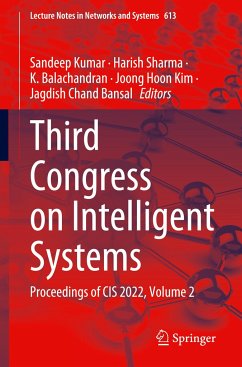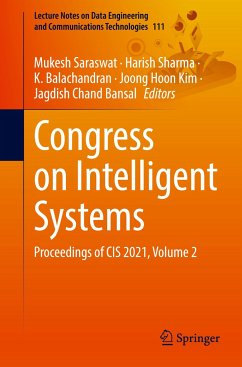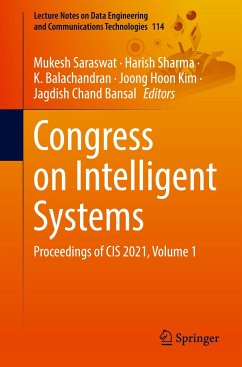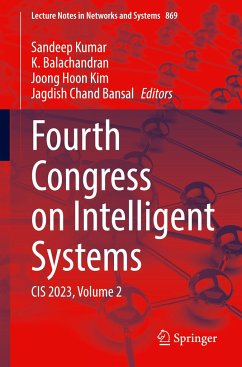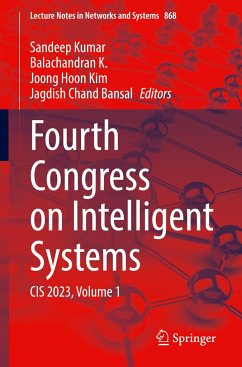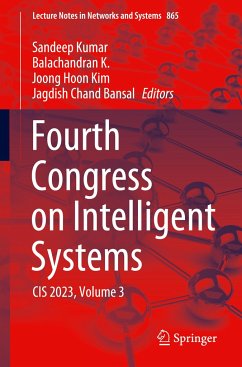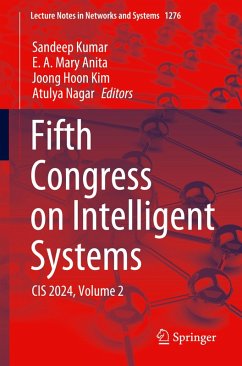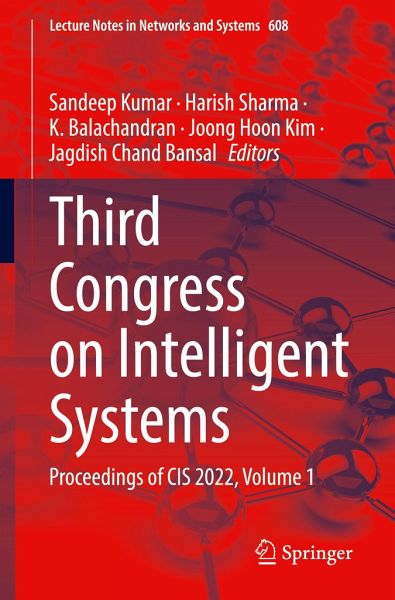
Third Congress on Intelligent Systems
Proceedings of CIS 2022, Volume 1
Herausgegeben: Kumar, Sandeep; Sharma, Harish; Balachandran, K.; Kim, Joong Hoon; Bansal, Jagdish Chand

PAYBACK Punkte
95 °P sammeln!
This book is a collection of selected papers presented at the Third Congress on Intelligent Systems (CIS 2022), organized by CHRIST (Deemed to be University), Bangalore, India, under the technical sponsorship of the Soft Computing Research Society, India, during September 5-6, 2022. It includes novel and innovative work from experts, practitioners, scientists, and decision-makers from academia and industry. It covers topics such as the Internet of Things, information security, embedded systems, real-time systems, cloud computing, big data analysis, quantum computing, automation systems, bio-in...
This book is a collection of selected papers presented at the Third Congress on Intelligent Systems (CIS 2022), organized by CHRIST (Deemed to be University), Bangalore, India, under the technical sponsorship of the Soft Computing Research Society, India, during September 5-6, 2022. It includes novel and innovative work from experts, practitioners, scientists, and decision-makers from academia and industry. It covers topics such as the Internet of Things, information security, embedded systems, real-time systems, cloud computing, big data analysis, quantum computing, automation systems, bio-inspired intelligence, cognitive systems, cyber-physical systems, data analytics, data/web mining, data science, intelligence for security, intelligent decision-making systems, intelligent information processing, intelligent transportation, artificial intelligence for machine vision, imaging sensors technology, image segmentation, convolutional neural network, image/video classification, soft computing for machine vision, pattern recognition, human-computer interaction, robotic devices and systems, autonomous vehicles, intelligent control systems, human motor control, game playing, evolutionary algorithms, swarm optimization, neural network, deep learning, supervised learning, unsupervised learning, fuzzy logic, rough sets, computational optimization, and neuro-fuzzy systems.



